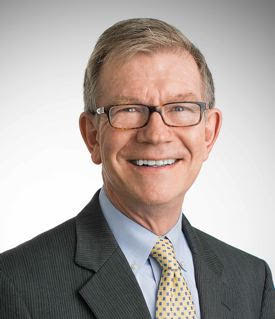FAITH MATTERS
Unitarian Universalism
I grew up outside any religious community. I was increasingly curious about spirituality and religion. More than being curious, I needed a compass to help answer the big questions: How do I live? What do I believe?
There was wisdom here and there in books and media, on world religions and philosophy. But I had no grounding in how to engage and live out these ideals. I needed a community. I found a reference in a book about Unitarian Universalism and sought out a local congregation. It proved to be an inviting place to put down roots. For me, it was an adventure of faith.
There are many ways to describe Unitarian Universalism. The website of our national association of congregations (uua.org) says “Our open-minded, open-hearted spiritual communities help people lead lives of justice, love, learning and hope.” We are a liberal faith tradition that is at once contemporary and historic. Unitarianism and Universalism emerged centuries ago, each as a liberal Christian faith. Each followed the dictates of their liberal hearts to follow truth where they found it, so each began to find wisdom beyond their native Judeo- Christian heritage. By 1961 the two traditions consolidated into the Unitarian Universalist Association of Congregations as a multi-spiritual, universal approach to religion.
Unitarian Universalism has no creed. In our congregations are various styles of spiritualty, from humanism to theism, all informed by various sacred traditions. A core value is the “free and responsible search for truth and meaning.” We are curious and ready to explore new wisdom. Another core value is love. To help us live out our intentions of love we use the concept of covenant. Covenant is Latin for “come together” and provides a way to stay in right relationship with each other, and to work for right relationship in the wider world.
Justice is what love looks like in public, philosopher and activist Cornel West has said. How we live, not merely what we believe, is central to Unitarian Universalism. Historically we’ve engaged the issues of the day, from abolitionism in Civil War times to women’s suffrage in the early twentieth century to civil rights, LGBTQ inclusion and affirming same-sex marriage later that century. In our generation the work of anti-racism and anti-oppression particularly calls us to our healing work in society. Being a Living Tradition centered in love and dedicated to the open and free road of discovery, we are naturally attentive to meeting the demands of our times.
For me, the sanctuary at the first church where I discovered this Living Tradition describes the core values of our congregations. In those early years I recall Sunday after Sunday walking into the sanctuary from a narthex that was paneled in dark wood and had low ceilings, into a room that was a burst of light and space. The ceiling was tall, with glass block surrounding the perimeter that bathed the unadorned walls with natural light. The pews, low and rooted. The speaking platform, wide. It was an inviting space, a place of discovery, a place large enough to hold my questions, my hopes, my spirit. Through my years that feeling of finding home in a large and inviting place is for me the best definition of Unitarian Universalism.
Rev. Samuel Schaal is the transition minister of the Unitarian Universalist Church in Surprise. See uusurpriseaz. org. 
Unitarian Universalism has no creed. In our congregations are various styles of spiritualty, from humanism to theism, all informed by various sacred traditions. A core value is the “free and responsible search for truth and meaning.”


Sam Schaal Guest Columnist
PART OF THE USA TODAY NETWORK Copyright © 2023 The Arizona Republic 1/25/2023

